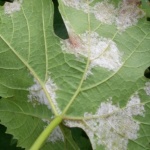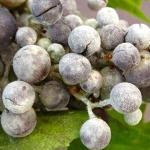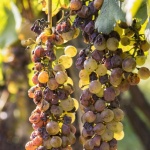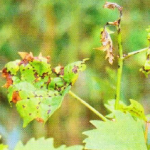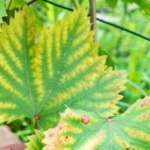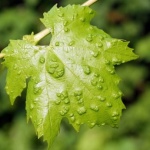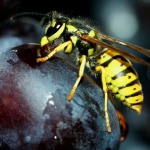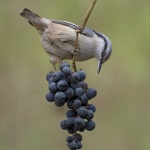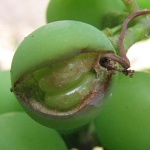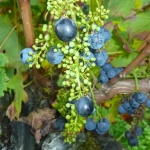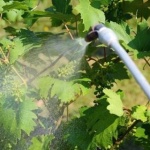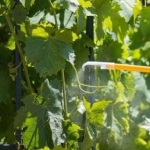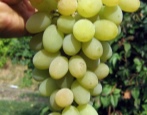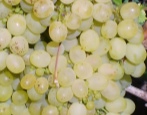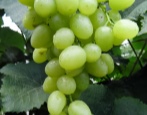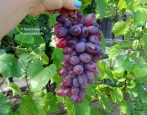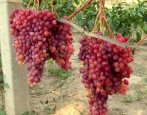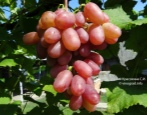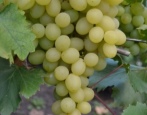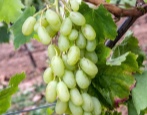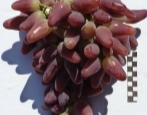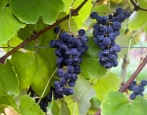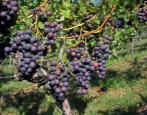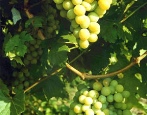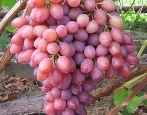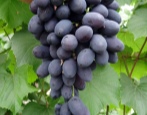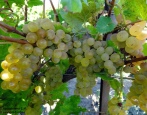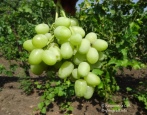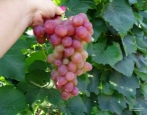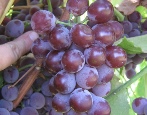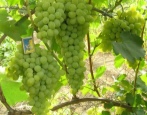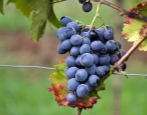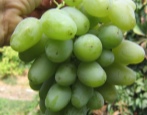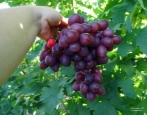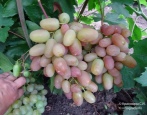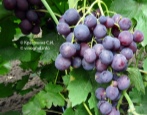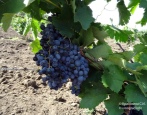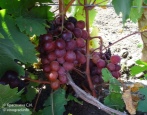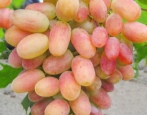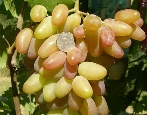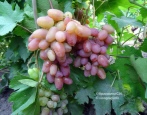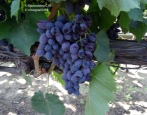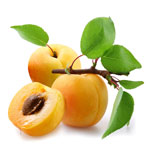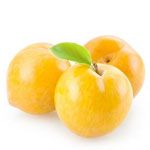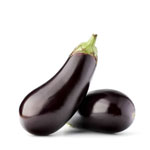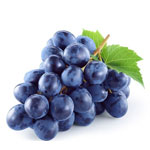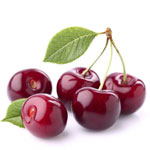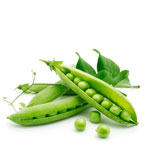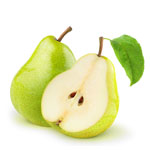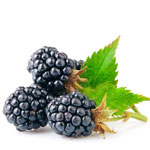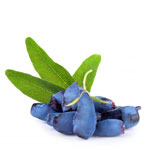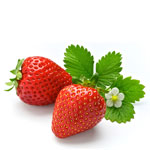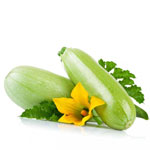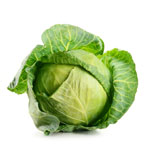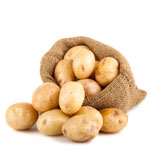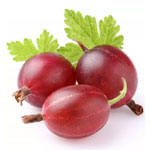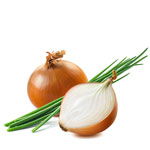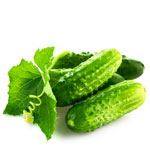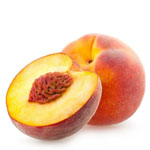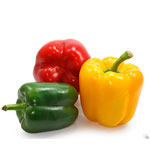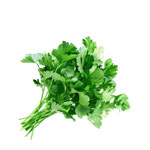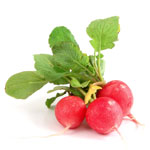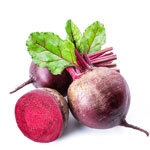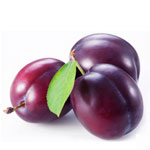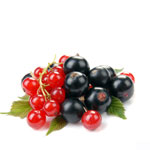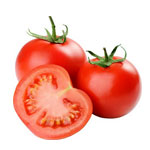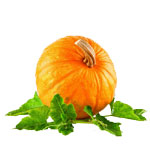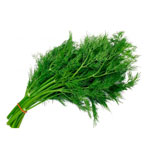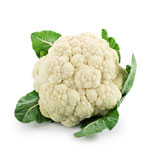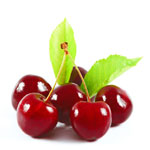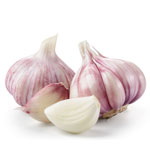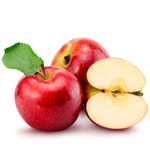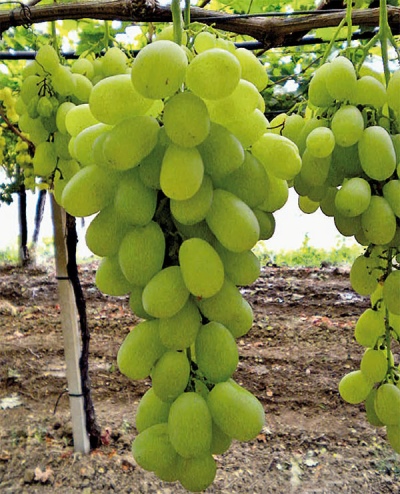
- Authors: Babrikov D., Bulgaria
- Appointment: dining room
- Berry color: amber yellow
- With bones: No
- Ripening period: early
- Frost resistance, ° C: -18
- Bunch weight, g: 700-2000
- Flower type: bisexual
- Density of the bunch: loose
- Skin: dense, tearing
Aphrodite is a table grape of Eastern European selection, which has proven itself well when grown on the territory of Russia. Cultivation rights are currently held by Italy. Russian winegrowers appreciate it for its versatility, classic taste, and resistance to cracking.
Breeding history
The grapes were obtained in Bulgaria by D. Babrikov. The pedigree contains the varieties Chaush, Rusalka, Cardinal and Italy. The variety was bred through complex hybridization.
Description
The variety belongs to the vigorous subspecies of raisins. The vine ripens well, rooting occurs easily and quickly when cuttings are cut. The fruitfulness of the kidneys is at a high level. The eyes of young plants are crimson, in the center of the petioles on the leaves are red veins.
Ripening period
An early grape variety reaches technical ripeness in the 2-3 decade of August. Ripening takes 110-115 days.
Bunches
The brushes are conical and loose. The weight of each bunch reaches 700-2000 g.
Berries
The shade of berries in the bunch becomes amber-yellow when ripe. The variety is characterized by the absence of seeds. The berries are egg-shaped, large in size, weighing 6-8 g. The skin is dense, torn, the flesh is crispy, without excessive softness.
Taste
Due to the sugar content of 220 g / dm3, the variety has sweetness, berries of a harmonious taste without unnecessary astringency. The grapes are juicy, with an acidity of no more than 6 g / l.
Yield
Aphrodite is one of the high-yielding varieties.
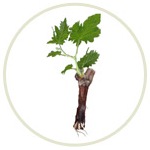
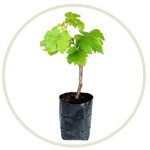
Growing features
The grapes of this variety are sensitive to the type and fertility of the soil. With a lack of trace elements, the brushes are formed later, the yield decreases. The optimal soil type is black soil. Cultivation is possible on rootstocks or in own-rooted culture.
Landing
Placing seedlings in open ground is carried out in the spring or autumn months, with an average daily temperature of at least +15 degrees Celsius. A distance of at least 1.5 m is maintained between adjacent plants in a row.
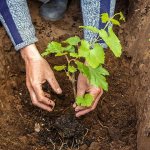
Pollination
Aphrodite's flowers are bisexual, pollination occurs without outside interference.
Pruning
It is recommended to shorten the vine by 8-12 eyes. Depending on the climatic conditions, the pruning can be medium or long.
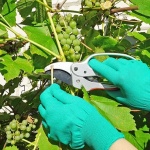
Watering
Correctly organized flow of moisture into the soil is the key to successful cultivation of the Aphrodite variety.He does not tolerate waterlogging. The first wake-up watering is done in the spring, after the end of the frost period. Usually the second half of April is chosen for him. This procedure will be needed again after pruning.
The third watering will be needed just before flowering. After this waterlogging should not be allowed, otherwise the buds will simply crumble. You should wait until the ovaries appear instead of flowers. At this point, the additional flow of water to the roots will have a beneficial effect on the quality of the crop. The fifth watering is done at the end of the season, when all the clusters are collected from the bushes.
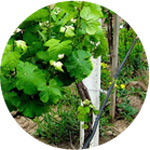
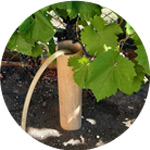
Frost resistance and the need for shelter
The vine can withstand a drop in atmospheric temperatures down to -18 degrees. It is recommended to take care of the careful cover of the shoots before the onset of cold weather.
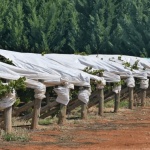
Diseases and pests
Aphrodite is characterized by low rates of resistance to fungal diseases. It is affected by almost all types of infections, including powdery mildew. Spraying for prophylactic purposes is carried out with insecticidal and fungicidal preparations. The procedure is carried out 3 times per season, with the beginning of the growing season, on the eve of the formation of ovaries and after it. The optimal choice can be called the drug "Antrakol"; Bordeaux liquid is also used.
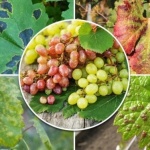
If a grape is exposed to any disease or insect, this always affects its appearance.
Storage
Aphrodite is characterized by high marketability, transportability. With prolonged storage on a bush, the appearance deteriorates somewhat, the taste loses its sweetness.
Review overview
According to gardeners, Aphrodite managed to prove herself perfectly in greenhouse cultivation and planting in the open field. It is noted that when kept in a school, cuttings are not infected with mildew from other varieties. Signal clusters in Russian conditions also fully justify themselves, give the size and weight of berries in accordance with the stated parameters.
Growers point to the great interest of birds in berries. In addition, the bunches can be located quite low, become polluted, so it is advised to mulch the soil in the root zone thoroughly. As for the seedlessness of the variety, gardeners note that in most berries, seeds are still present, but they are soft, weakly noticeable. In the taste, astringency is also distinguished, which remains on the stepson's harvest - this is called an insignificant, but minus of the variety.
